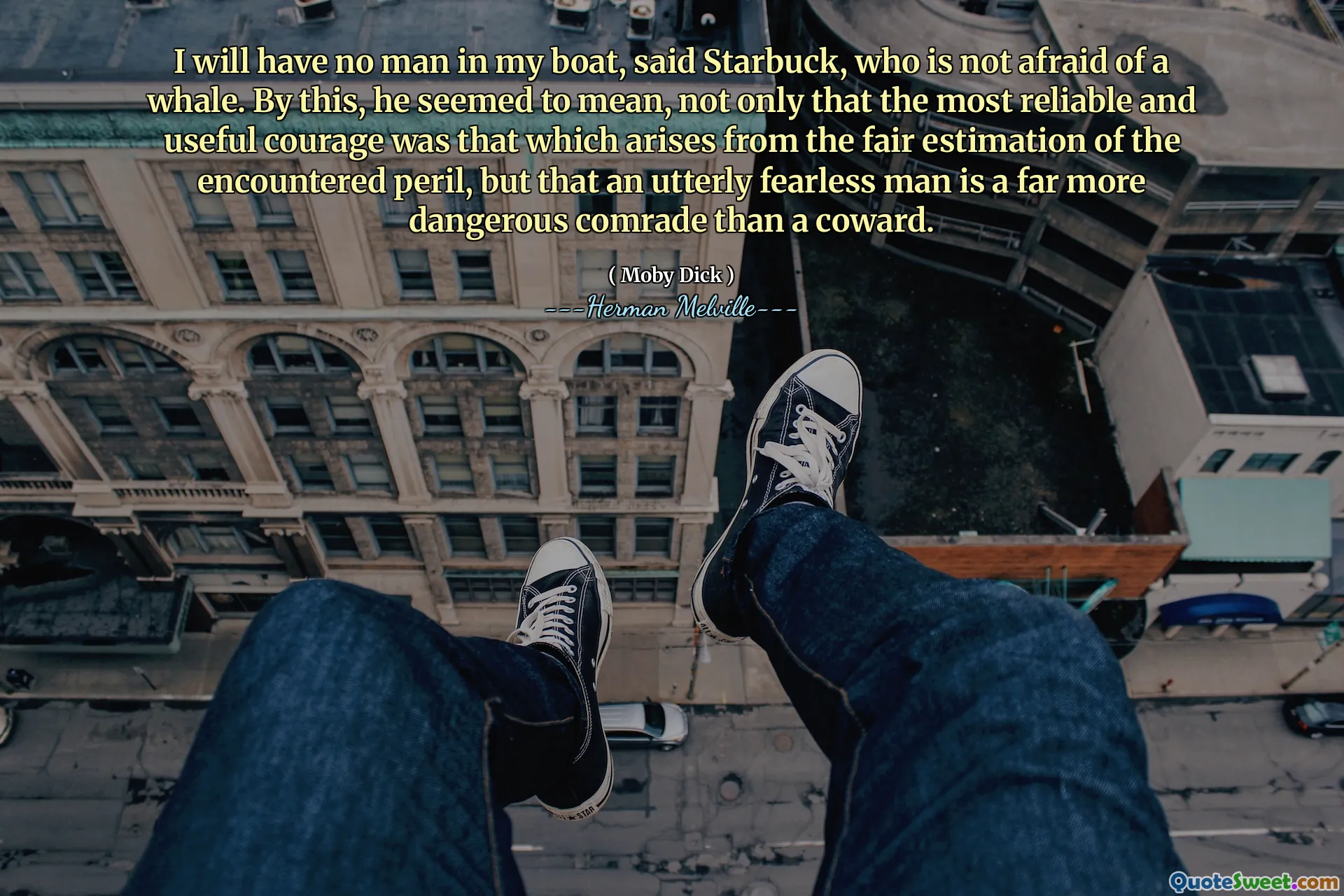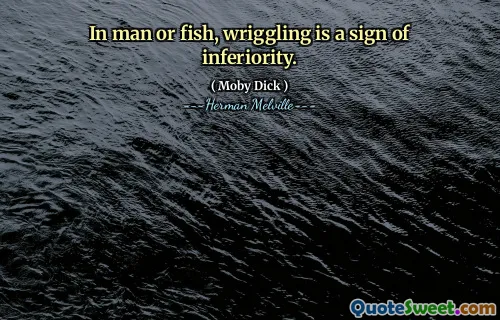
I will have no man in my boat, said Starbuck, who is not afraid of a whale. By this, he seemed to mean, not only that the most reliable and useful courage was that which arises from the fair estimation of the encountered peril, but that an utterly fearless man is a far more dangerous comrade than a coward.
In Herman Melville's "Moby Dick," Starbuck expresses a profound sentiment about bravery and fear. He emphasizes the importance of recognizing and respecting danger, suggesting that true courage is informed by an understanding of the risks involved. This perspective highlights that those who acknowledge the threat of a whale—and fear it appropriately—tend to be more reliable companions in perilous situations.
Starbuck's view also indicates that an entirely fearless individual can pose a greater danger than a coward, as their lack of fear may lead to reckless behavior. In essence, he values a balanced form of bravery, one that combines awareness of threats with the courage to face them wisely, rather than ignoring danger altogether.











